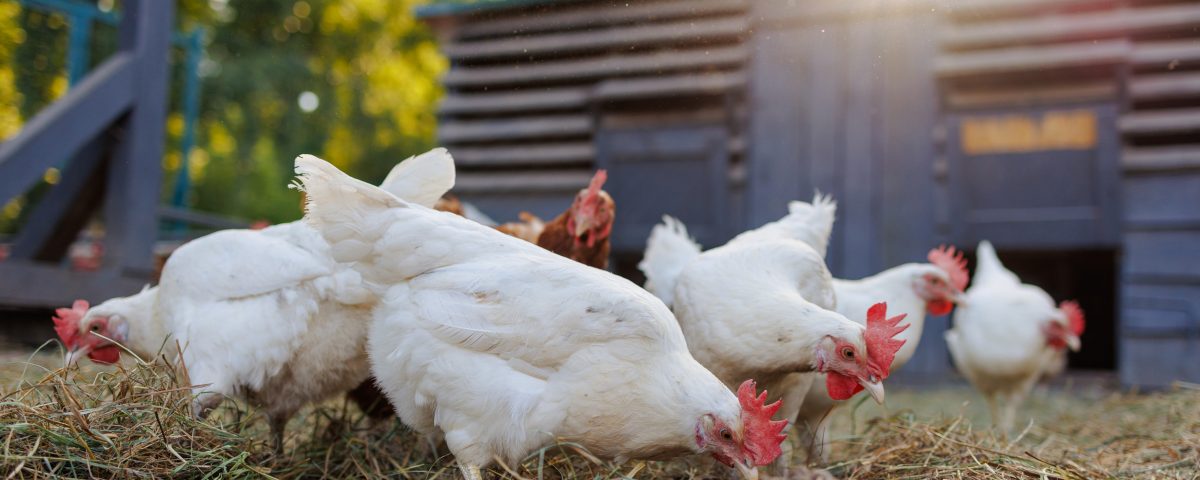
DIY vs Pre-Built Chicken Coops: Pros & Cons
July 1, 2025
Can You Have a Shed in Your Lafayette, Indiana Neighborhood? Here’s What to Check
September 1, 2025Raising chickens can be a rewarding and sustainable way to enjoy fresh eggs and connect with a more self-sufficient lifestyle—but before you dive in, it’s important to understand the rules and best practices that come with using chicken coops in Indiana.
From legal requirements to coop design and maintenance, here’s everything you need to know to get started.
Legal Requirements & Regulations
Before building your coop or buying your first chicks, check your city or county’s zoning laws and animal ordinances. Some Indiana municipalities require permits just to own chickens and place limitations on how many you can have.
Some cities and counties also have specific requirements for the location and maintenance of your chicken coop. For example, in Lafayette, Indiana, a chicken coop has to be at least eighteen inches high and accommodate at least one square foot of floor space per chicken. Meanwhile, in Ellettsville, Indiana, you must provide a minimum of twelve square feet per hen (can combine your coop and run).
Be sure to look into the specific codes for your city or county to ensure you meet all the necessary requirements and regulations.
Space & Size
A cramped coop can lead to stress, disease, and aggressive behavior among your hens. Again, different cities may have specific requirements, but most experts recommend 3-4 square feet of living space per bird and about 10-12 inches of roosting space per bird.
The amount of space you need may change depending on the types of chickens you plan to house, how many you have, and whether or not you plan on them being confined to the coop a majority of the time.
Location
When placing your chicken coop, choose a dry, well-drained area that gets some sun and shade throughout the day. Avoid placing the coop in a low-lying area where water can collect after rain.
Also, consider your proximity to your own and other nearby homes—many Indiana cities have rules requiring coops to be a certain distance from property lines or homes. On average, you should try to keep your coop 25-30 feet from any residence.
Security
Chickens are vulnerable to a number of predators in Indiana, including raccoons, hawks, foxes, and even neighborhood dogs. Make sure your chicken coop is made from high-quality materials and has locks on any doors or windows so it can withstand any potential intruders.
You can also utilize nets and fencing to secure your flock. Electric fencing is also an option to keep predators out and your chickens in.
Nesting Boxes & Roosting
Hens need cozy, private spaces to lay their eggs. Provide one nesting box for every 3–4 hens, filled with soft bedding like straw or wood shavings.
At night, chickens naturally seek a high place to sleep, so install roosting bars a few feet off the ground. This keeps them safe from ground-level pests and supports healthy sleep habits.
Maintenance
Like any animal shelter, a chicken coop requires regular cleaning and maintenance to prevent odor, bacterial buildup, and pest problems. In some municipalities, this maintenance isn’t just essential—it’s a legal requirement. This often includes:
- Weekly spot cleaning of droppings
- Monthly deep cleaning of bedding and surfaces
- Ensuring proper drainage and airflow to keep the coop dry
Using removable trays or a “droppings board” under the roost can make cleanup easier.
Lighting
Did you know hens need 14-16 hours of light to maintain consistent egg production? Because of this, it’s crucial that your chicken coop has effective and consistent lighting—both natural and supplemental.
If you’d like your hens to continue laying through the winter, consider installing a low-wattage bulb on a timer to supplement natural light. Avoid high-heat bulbs, which can become fire hazards.
Professional Build or DIY Construction
When setting up your chicken coop, one big decision is whether to build it yourself or choose a professionally built option. While DIY coops might seem budget-friendly, they require significant time, tools, and skill to create a safe, durable, predator-proof structure that meets local codes.
Professionally built chicken coops offer the perfect mix of quality, convenience, and customization. Made with premium materials and sturdy construction, these coops are designed to withstand Indiana’s weather and protect your flock—plus they include features like nesting boxes, roosting bars, and easy-access doors.
With a wide range of sizes, styles, and custom options available, working with a professional ensures that your coop fits your space and your needs.
Whether you're raising a small backyard flock or planning a larger homestead setup, understanding the requirements and best practices for chicken coops in Indiana will help ensure your chickens are happy, healthy, and productive.
Little Fawn is a local full-service lumber yard and distributor of building materials, roofing materials, storage sheds, hardware, ammo, and more.
As people that grew up in the construction industry, we understand that when you need something for a project—you need it now and can’t wait weeks for delivery! That’s why our main goal is to help you easily find what you need, get helpful advice, and receive quick delivery.
Contact us today to get what you'll need for your next building project. Don’t forget to check us out on Facebook and Twitter!



